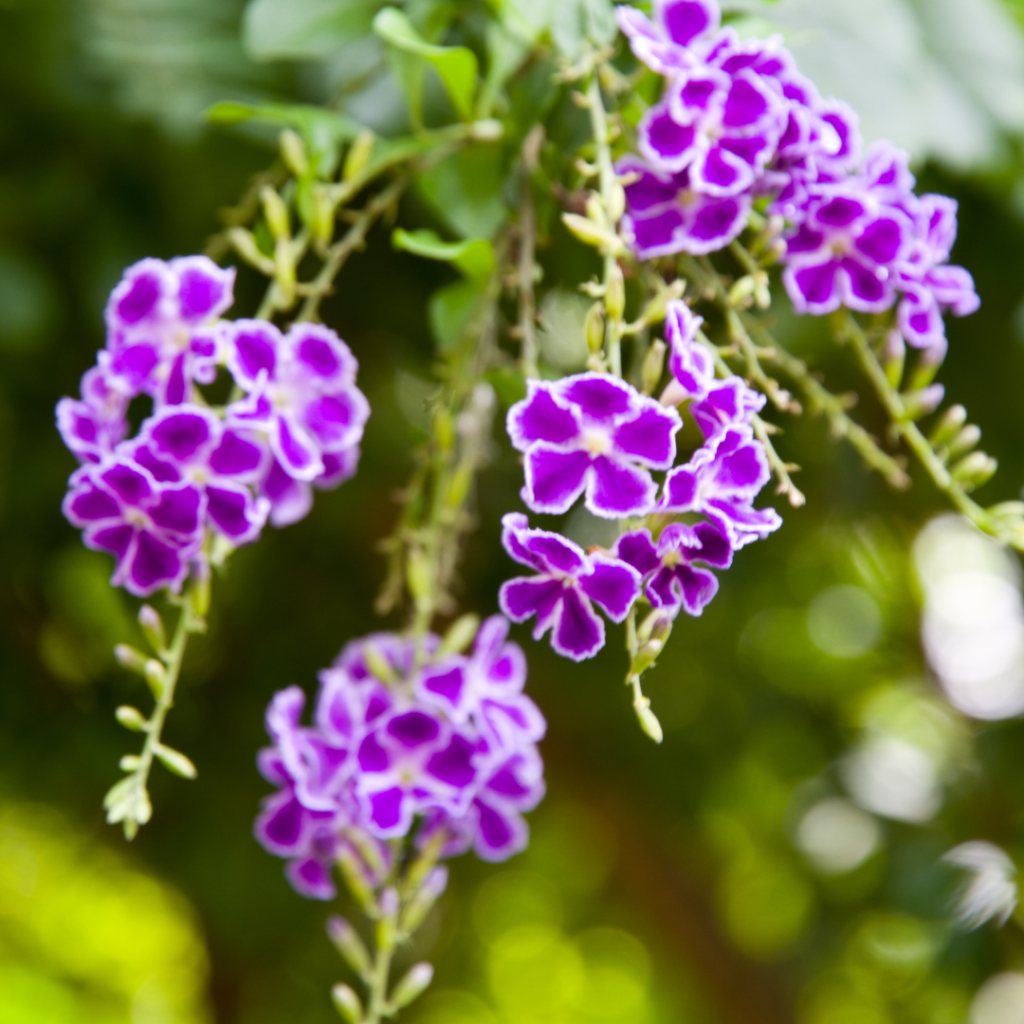Introduction
The verbena family includes the evergreen shrub or tiny tree known as the golden dewdrop (duranta erecta). It’s a fantastic choice for the garden. Other common names include “sapphire showers,” “pigeon berry,” and “sky flower.” The term “golden dewdrop” describes the elongated, yellow-orange fruits that are produced in the late summer and early fall. Some academics contend that the fruit and leaves of the tree are poisonous to people. In addition, they are not harmful to the birds but can be lethal to kids and pets if eaten. The hundreds of clusters of light blue, white, or violet blooms that the tree produces throughout the growth season are referred to as “sapphire showers.”
Background and Description
The duranta erecta’s origin has been widely debated. Some sources claim that the Florida Keys, the West Indies, and Central America are the tree’s primary habitats. When planting this tree, keep in mind that it grows in a weeping fashion and may be invasive in tropical areas. As such, the tree is often grown as a perennial in warm areas and can grow up to ten to twenty feet tall. The golden dewdrop is grown as an annual in colder climates. Also, keep in mind that older trees can have thorns.
Lighting
The golden dewdrop generally enjoys full daylight, which is defined as six or more hours in direct sunlight every day. However, it will also thrive in partial shade (only receiving direct sunshine for 2 to 6 hours per day). Remember that fewer blooms will likely come from less sunlight.
Landscaping
The sapphire showers can be used as privacy screens by landscapers. The trees can be trimmed and displayed as a landscape focal point. The eye-catching golden fruits and vibrant lavender blossoms will add a burst of color to the landscape.
Butterfly and Wildlife Garden
Butterflies and bees receive a consistent supply of food from the flower nectar. Insects can feed from bloom to bloom thanks to the floriferous clusters. The decorative tree is also attractive to hummingbirds. Although the fruit is poisonous to people, birds can easily eat the berries.
References
UF/IFAS. (2023, February 10). Golden Dewdrop. https://gardeningsolutions.ifas.ufl.edu/plants/trees-and-shrubs/shrubs/golden-dewdrop.html
NC State Extension. Duranta Erecta- Common Name(s): Golden Dewdrop; Pigeon Berry, Skyflower. https://plants.ces.ncsu.edu/plants/duranta-erecta/
